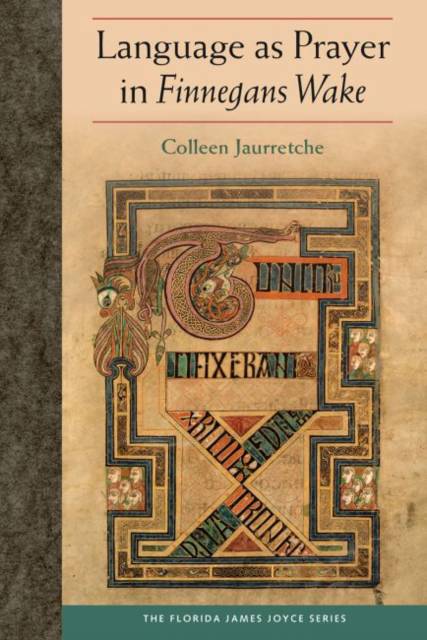
- Retrait gratuit dans votre magasin Club
- 7.000.000 titres dans notre catalogue
- Payer en toute sécurité
- Toujours un magasin près de chez vous
- Retrait gratuit dans votre magasin Club
- 7.000.0000 titres dans notre catalogue
- Payer en toute sécurité
- Toujours un magasin près de chez vous
Description
This innovative analysis shows how James Joyce uses the language of prayer to grapple with profoundly human ideas in Finnegans Wake--the dreamlike masterpiece that critics have called his "book of the night." Colleen Jaurretche moves beyond what scholars know about how Joyce composed this work to suggest why he wrote and arranged it as he did.
Jaurretche provides a sequential reading of the four chapters and corresponding themes of the Wake from the perspective of prayer. She examines image, manifested by the letters of the alphabet and the Book of Kells; magic, which Joyce equates with the workings of language; dreams, which he relates to poetry; and speech, glorified in the Wake for its potential to express emotions and ecstasy. Jaurretche bases her study on important thinkers from antiquity to the present, including Origen of Alexandria, Giambattista Vico, and Giordano Bruno. She demonstrates how these philosophers influenced Joyce's view that prayer can imbue language with power.
This book is an illuminating and much-needed interpretation of a work that abounds with echoes and cadences of sacred language. Jaurretche's insights will guide readers' understanding of the style and structure of Finnegans Wake.
A volume in the Florida James Joyce Series, edited by Sebastian D. G. Knowles
Spécifications
Parties prenantes
- Auteur(s) :
- Editeur:
Contenu
- Nombre de pages :
- 198
- Langue:
- Anglais
- Collection :
Caractéristiques
- EAN:
- 9780813066370
- Date de parution :
- 07-04-20
- Format:
- Livre relié
- Format numérique:
- Genaaid
- Dimensions :
- 152 mm x 229 mm
- Poids :
- 462 g

Les avis
Nous publions uniquement les avis qui respectent les conditions requises. Consultez nos conditions pour les avis.






